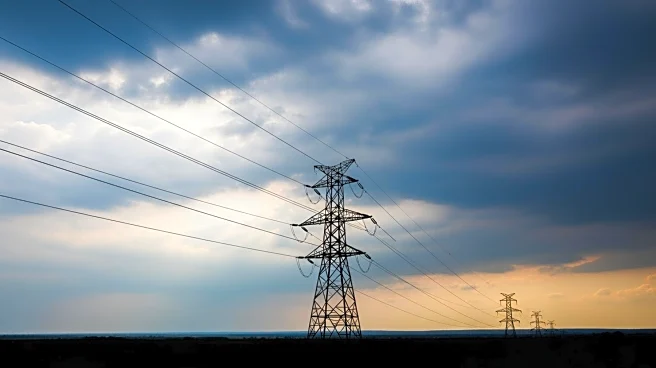What's Happening?
The Dominican Republic suffered a nationwide power cut on Tuesday, linked to a failure in the electricity transmission system. The blackout occurred at 13:23 local time, affecting the entire country. Officials
from the state-owned Dominican Electricity Transmission Company reported that an issue at a substation caused the interruption, as stated by the country's energy minister Joel Santos Echeverría. The Caribbean nation, home to around 11 million people, had been experiencing smaller blackouts in recent weeks. As of Tuesday evening, approximately 33% of the national power demand had been restored, with efforts underway to fully restore services.
Why It's Important?
The nationwide blackout in the Dominican Republic underscores the challenges faced by the country's energy infrastructure. The incident highlights the need for robust maintenance and investment in the transmission system to prevent future disruptions. The blackout has significant implications for the economy, affecting businesses, transportation, and daily life. It may prompt discussions on energy policy and infrastructure development, emphasizing the importance of diversifying energy sources and improving grid reliability. The reliance on fossil fuels for energy generation raises concerns about sustainability and environmental impact.
What's Next?
Efforts are ongoing to restore full power services across the Dominican Republic. The government may need to address the root causes of the transmission system failure to prevent future occurrences. This situation could lead to increased pressure on authorities to invest in renewable energy sources and enhance grid stability. Stakeholders, including political leaders and energy companies, may engage in discussions to develop strategies for improving the country's energy infrastructure and reducing dependency on fossil fuels.
Beyond the Headlines
The blackout may have broader implications for regional energy cooperation and investment in renewable energy projects. As the Dominican Republic shares the island of Hispaniola with Haiti, there could be opportunities for cross-border energy initiatives to improve grid resilience. The incident also highlights the importance of diversifying energy sources to mitigate the impact of transmission failures and reduce environmental impact.









